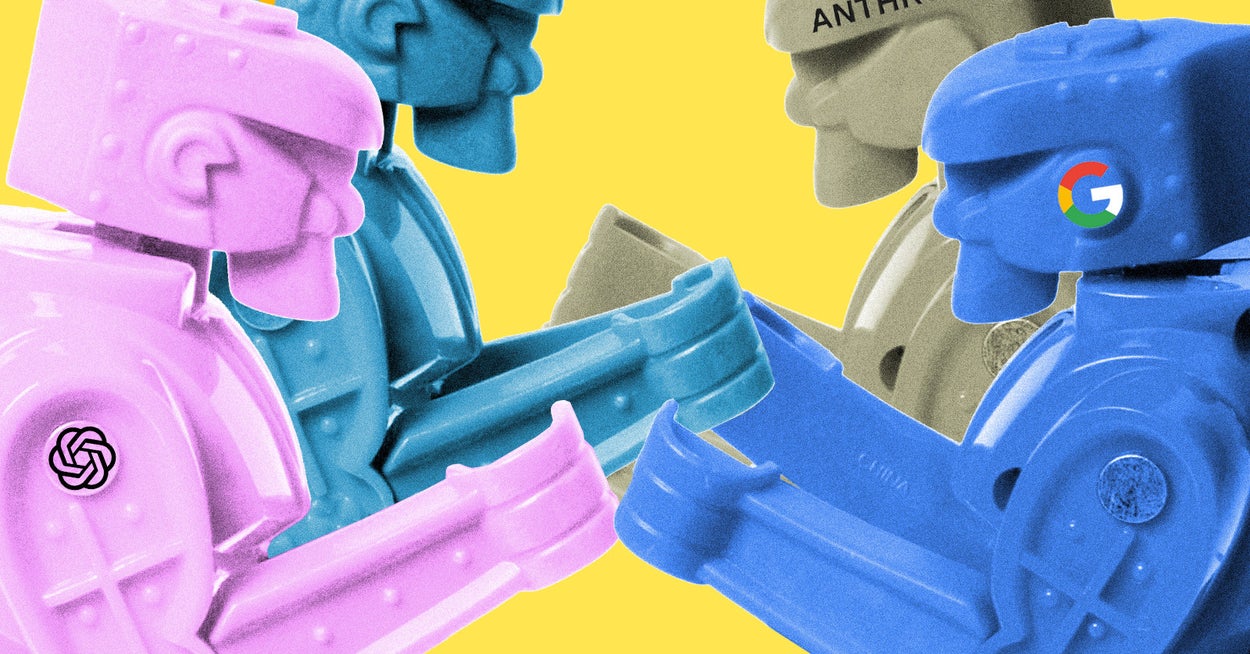Recent developments in the field of artificial intelligence (AI) have ignited widespread discussion and enthusiasm, spurred primarily by OpenAI’s release of ChatGPT. The rapid acceleration of AI advancements was particularly evident this past week, with several major tech entities unveiling new strategies and products that signal a significant shift in how AI will be integrated into everyday tools and business practices.
On Tuesday, Google announced its intention to enhance its suite of productivity tools, including Gmail, Google Docs, Sheets, and Slides, with more AI capabilities. This integration aims to automate and streamline tasks. For instance, Google Docs will be equipped to compose various documents such as essays, cover letters, sales pitches, and job descriptions with minimal user input. Gmail will soon have the capacity to summarize email threads and draft replies automatically, potentially saving users a substantial amount of time. Additionally, Google Slides will be updated to generate comprehensive presentations based on a few simple prompts from the user.
Moreover, Google revealed plans to democratize access to its AI technology by allowing other companies to build their own AI-driven tools using Google’s AI model. This move could catalyze a broader adoption and development of AI applications across different industries.
Almost simultaneously, Anthropic, an AI startup that recently secured over $300 million investment from Google, announced the launch of Claude. Claude is positioned as a direct competitor to OpenAI’s ChatGPT, designed to serve the business sector with advanced conversational capabilities.
Not to be outdone, OpenAI introduced GPT-4, the latest iteration of its generative AI technology. According to OpenAI, GPT-4 is not only more powerful but also smarter and more accurate than its predecessors. The company claimed that GPT-4 has the capability to perform complex tasks such as preparing tax returns, designing websites from mere sketches, and successfully passing multiple standardized tests, including the rigorous Uniform Bar Exam.
These announcements continued on Thursday when Microsoft declared it would be integrating AI into its Microsoft Office suite — including Word, Excel, PowerPoint, Outlook, and Teams. This integration is part of Microsoft’s ongoing partnership with OpenAI and is aimed at eliminating tedious tasks and enhancing user productivity. Microsoft’s AI-powered Office promises to facilitate the creation of sophisticated PowerPoint presentations in moments and simplify the analysis of complex data in Excel, all through simple user commands.
The surge of AI developments this week didn’t stop with these giants. Midjourney, a competitor to OpenAI’s DALL-E 2 image generator, unveiled a new version of its product, boasting of advanced capabilities and higher resolution outputs. Stanford University also stepped into the arena with an AI model developed using technology from Meta. Furthermore, numerous companies, both large and small, released a flurry of statements expressing their intentions to explore and invest in AI technologies.
Neil Sahota, a lecturer at the University of California, Irvine, and an adviser to the United Nations on AI, shared with BuzzFeed News his insights on these developments. He described the current landscape as an “AI arms race,” with companies striving not only to keep up with the competition but also to secure a leading position in the rapidly evolving market. Sahota noted that the entities who establish their dominance early on will likely enjoy significant competitive advantages, as AI technologies are expected to become standard offerings in the near future.
This whirlwind of announcements paints a clear picture: the race among tech giants to lead in AI innovation is fiercer than ever. Each company is eager to outpace its competitors with more integrated, efficient, and intelligent AI solutions. The focus is not just on creating new products but also on transforming existing applications to make them smarter and more responsive to user needs.
As AI continues to evolve and become more intricately woven into the fabric of digital services, the implications for productivity, efficiency, and even creativity are profound. Users across various sectors—from corporate environments to educational institutions—will increasingly encounter AI-enhanced tools that promise to simplify complex tasks and foster an environment where focus can shift from mundane operational details to strategic and creative processes.
Moreover, these developments reflect a broader trend of AI democratization, where access to powerful AI tools is no longer confined to tech behemoths. Small businesses and individual developers are being provided platforms and APIs to create custom solutions tailored to specific needs and challenges.
In essence, the transformation ushered in this week by leading tech companies underscores a pivotal shift towards an AI-centric approach in software and business solutions. Consumers and businesses alike are poised to experience a step-change in how digital technology supports and amplifies human efforts across all facets of professional and personal endeavors. As we advance, the integration of AI into our daily digital tools not only promises enhanced efficiency but also opens up new avenues for innovation and creativity, shaping the future of work and interaction in an increasingly digital world.









